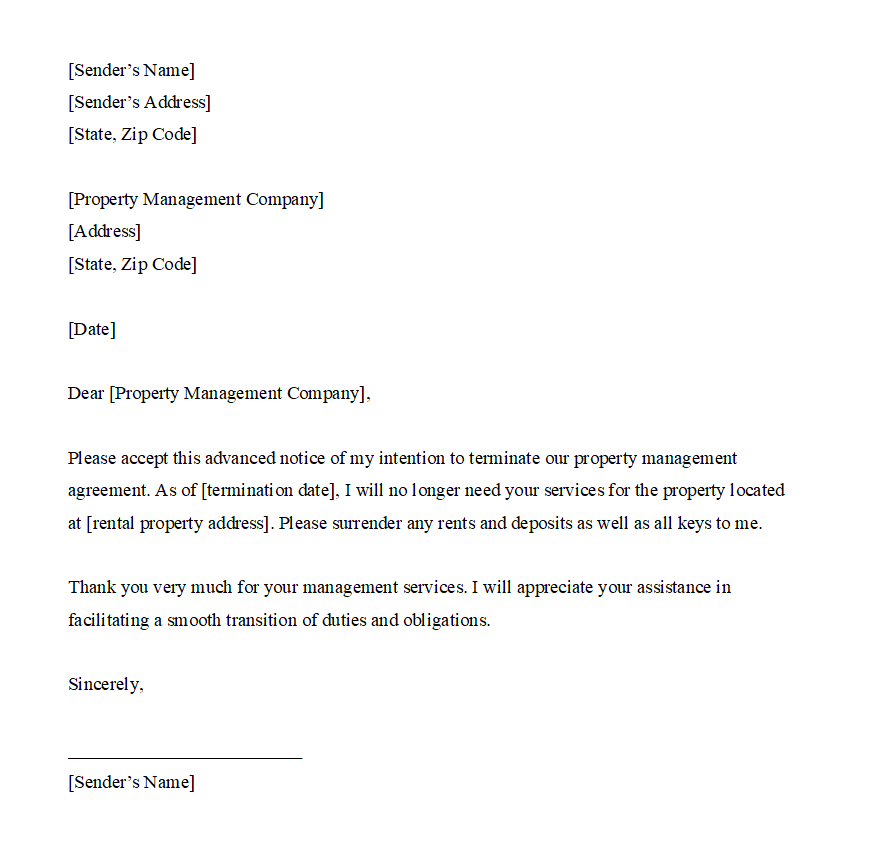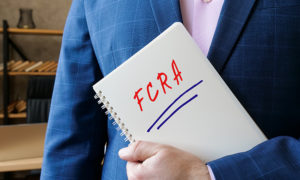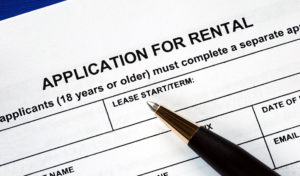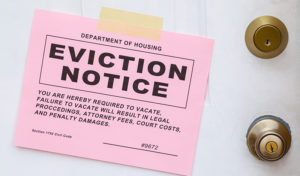A property management agreement is a necessary and valuable tool in any business deal between a property owner and a management company. But, it is not always easy to know what these contracts should contain. Learn what to look for in a property management agreement below.
The Importance of a Property Management Agreement
What is a property management contract? Also known as a property management agreement, a property management contract is a legally binding form or document between a property owner and a property management company or manager. Property management contracts stipulate what each party expects from the other, including payments and responsibilities.
Why is it important to have a property management agreement? You might wonder why there is even a need for a contract. As a property owner, you need to protect yourself and your investment. A good way to do that is to sign an agreement between you and the firm you have hired to manage your rental property. Since these agreements contain property management terms and conditions, it is imperative to have one.
It is worth noting that you are legally required to sign a property management contract if you enter into a business deal with a property manager or company. Before putting your signature on any legally binding document, it is best to have your attorney look over it first.
You can easily research a landlord’s property management agreement template online. There is also a property management agreement template available on the U.S. Securities and Exchange Commission website.
What to Review in a Property Management Contract
Which would you expect in a property management contract? Normally, a property management agreement will include the terms and conditions of your business relationship with a company or manager. It formally puts into writing things like how long the contract will last, how much you should pay the company every month, what services you are entitled to, etc.
While part of the contract will spell out boilerplate items, there are a few key items you must watch out for, such as the following:
Fee Structure
What is included in a property management agreement? One of the most important parts of any property management contract is the section that talks about fees. It is imperative that you review the company’s fee structure prior to signing the agreement. This way, you know how much you need to pay the company on a monthly basis.
Not all companies have the same fee structure. Some companies charge a flat fee every month, while others take a portion of the monthly rent. If you are dealing with the latter, see to it that the company takes their fee from the rent amount collected and not the due amount.
Most companies also charge other fees in addition to the standard monthly management fee. This can include an initial setup fee, a vacancy fee, a tenant placement fee, and even an eviction fee. It is also worth asking whether there are any fees that apply to your tenant instead of you. Carefully reviewing all of the prices and costs involved will save you the trouble of dealing with surprise fees.
Property Manager Responsibilities
What responsibilities does a property manager have? Your property management agreement should outline them as well. Some companies offer their services on an a la carte basis, while others provide full-service rental management services. You should know what to expect from your property manager or company. This way, you can keep track of whether or not the company or manager is fulfilling all of their required duties according to the contract.
It is also important that each outlined service goes into further detail. For example, if your management company will market your property, the contract should describe how. Are they going to list your property online? Will they include your listing in newsletters? Part of successful rental management is finding quality tenants to fill your vacancies.
Property Owner Responsibilities
This is another section of your property management agreement that deserves attention. This section should dictate what you, as a property owner, should and should not do.
A common contract obligation of property owners is keeping a reserve fund. Property owners must have a separate account purely dedicated to covering expenses related to the rental property. The property manager or company can dip into this reserve fund to address various daily expenses, maintenance and repair problems, and emergencies.
Property owners are also usually required to secure the right insurance for their rental property. The agreement should go into detail about what types of insurance you must obtain as well as the coverage amount for each one.
When it comes to what property owners cannot do, common restrictions include finding tenants and entering the property without prior manager approval and tenant notification.
Spending Authority
You already know about the reserve fund most contracts require you to open and maintain. But, there must also be a clause in your contract that limits the property manager’s spending authority. This should specify how much money the manager or company can spend without obtaining your approval. You should not give your property management company or manager unrestricted access.
Equal Opportunity Housing
What is required in a property management agreement? For legal purposes, a property management contract should include a section specifically stating their support for Equal Opportunity Housing. It must include a section stating that the property management company will comply with federal and state fair housing laws, including the Fair Housing Act.
Hold Harmless Clause
It is equally important to look over the hold harmless clause, which limits liability on the property management company’s part. This clause protects the company against liability unless it exhibited negligence. Keep in mind, though, that the property management company cannot be held liable if a third party has been negligent.
You should see to it that this portion of the agreement consists of a reasonable care clause. This states that the company is not responsible for the negligence of a third party if they practiced “reasonable care” when hiring them. In other words, the company should make sure to vet any vendors or contractors they hire.
Contract Duration
It is unwise to enter a contract with a property management company you have never worked with before. This is because you have no way of determining firsthand whether or not they can deliver good results. Therefore, try to avoid signing an agreement with a long contract duration.
What is the standard term for a management contract? Most management contracts last for a minimum of one year. This is usually not in your favor because it means you might find yourself stuck in a long-term business relationship with a bad company. If a company will not sign for less than a year, make sure the agreement gives you the option to end the contract early.
Termination Clause
A termination or cancellation clause is an essential part of every property management agreement. This clause should specify when either party can terminate the contract as well as why. The next section will cover more information on how you can end your contract with your management company or manager.
How Do I End a Property Management Agreement?
There should be a section of the agreement covering the termination of contract, usually referred to as the termination clause. A contract’s termination clause will usually cover the following:
Reason to Terminate
The first thing you should do is check whether you can terminate your contract without reason and without penalty. It is best to have such language included in your agreement before signing it, though not all companies will allow this. You should also make sure the contract specifies your right to terminate if the property management company fails to secure a tenant for your property within a set period of time.
Notice Requirements
You need to give your property manager or company advance notice of your intention to end your contract. The exact notice period can vary from contract to contract, though it usually falls between 30 and 90 days’ notice. Failure to comply with the notice window might put you in legal trouble for breach of contract.
Additionally, you should make sure notice requirements cut both ways. That means your property management company should also give you at least 30 days’ notice of their intent to terminate.
Here is a notice of property management contract termination template you can use:

Download Your Notice of Property Management Contract Termination Template Here
Termination Fees
Ideally, you would not need to pay any fees when you decide to terminate your contract before its expiry. Unfortunately, that is not the case for most companies.
You will usually need to pay a termination fee. This can range anywhere from a few hundred dollars to the total property management fees for the remaining months of the contract. For instance, if your fees total $1,000 a month and there are still nine months left on your agreement, the termination fee would be $9,000.
Duties Upon Termination
Your termination clause should also include the responsibilities of each party upon the cancellation of the contract. Some companies will require you to sign a separate contract termination agreement. Examples of duties include but are not limited to:
- The property management company must notify the tenant of the change.
- Any party that owes money to the other party must pay the amount due within 30 days of the termination.
- The property management company must deliver copies of all tenants’ lease agreements within 14 days of the termination.
The Final Word
You might be eager to sign with a property management company since it means you will have more freedom and less stress managing your rental property. But, in the confusion and excitement, you might skip over essential clauses and details. Always make it a point to review your property management agreement carefully, preferably with the help of your attorney.
Are you on the hunt for the best property management company? Find one near you today with Rental Choice! Our online directory will help you to search and contact property management companies easily.
RELATED ARTICLES:
- 20 Questions To Ask Property Managers Before Hiring Them
- A Complete Guide to Hiring Property Management Services
- What Are The Legal Liabilities Of Property Managers



 Employment History: A landlord should check if a tenant has a stable employment history. This ensures that a tenant has a steady source of income for rent payments. It’s important to also ask for their current employer, job description, and employment references.
Employment History: A landlord should check if a tenant has a stable employment history. This ensures that a tenant has a steady source of income for rent payments. It’s important to also ask for their current employer, job description, and employment references. Issues with FCRA Compliance
Issues with FCRA Compliance Prior addresses
Prior addresses 9. Trust Your Gut
9. Trust Your Gut Exterior cleaning should be a part of any building maintenance checklist. A great way to extend the lifespan of your property is to clean it using a pressure washer.
Exterior cleaning should be a part of any building maintenance checklist. A great way to extend the lifespan of your property is to clean it using a pressure washer. 7. Unclog the Sinks
7. Unclog the Sinks 3. Rent to Better Tenants
3. Rent to Better Tenants 9. More Free Time
9. More Free Time
 11. Eviction
11. Eviction Company
Company